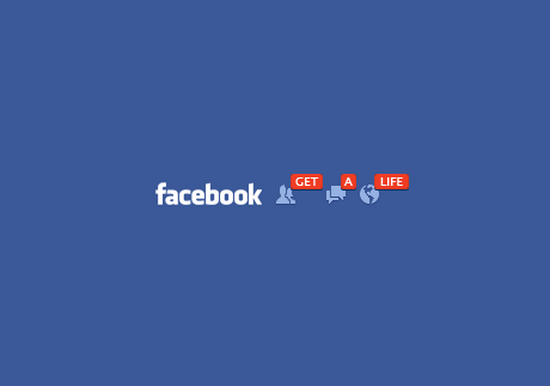We all try to be productive. We all have lots of stuff that we need to get done, for work, for our art, for our families. This is all good.
So maybe you’re too busy to get it all in. To write the book you’ve been meaning to write. Too busy to get to the gym. Or just drowning in email and want it to end. It doesn’t have to be that way. The right productivity tweaks can get you where you need to be–to help you get more done without adding more to your plate.
But you have to remember: It’s human being not human doing. With that in mind, here is some productivity advice that will certainly help you get more done, but more importantly, will help you get more done in a healthy, effective and balanced way. Some of these I have learned by virtue of working alongside people much smarter than me and stealing their tricks, others through my own trial and error.
**
–Keep texting for friends only. If there are too many ways for people to reach you, the day never ends and you’ll never have time to think. I try to not do any business texting–only email and only phone. When I get a text, I know it’s from a friend.
–Walk during all your phone calls. You’ll be happier for it.
-A small to-do list of 5–10 items, if completed day in and day out, will put you far ahead of everyone else.
-Save time in the mornings before you do email or social media. Write in a journal, have breakfast with your kids, take a long shower. Don’t jump immediately into the noise. Have some peace and thoughtful time first.
-Inbox zero. Inbox zero. Inbox zero. (but here’s the key: you don’t have to respond to most. Delete/archive is your friend)
-On that note, Napoleon used to deliberately ignore correspondence for weeks so the trivial stuff would deal with itself. I do that with things that are particularly frustrating or aggravating. What if you just thought: Oops, I accidentally deleted that offensive email or Oops, I guess I never saw it. Chances are it would save you some anger.
-What’s your main thing? Ok, so why are you doing all these other things?
-Reading is work, important work actually. Don’t let anyone tell you otherwise.
-If you’re struggling with something, print it out and go over it in physical form. The computer is a medium and not always the best one. Don’t feel stuck or wedded to it.
-Fire crazy people from your life. That is: people who send too many emails, people who stir up drama, people who can’t be counted on, people who waste your time with projects that don’t go anywhere. It’s not fair to you, it’s not fair to your clients/employer, it’s not fair to your family.
-To concentrate, listen to the same song over and over and over and over.
-Make commitments–short, regular deadlines that you have to meet. It will force you to ship and deliver results. This is how you will improve. It will also get you out of your own head.
-Use tools but don’t overuse tools. I really like Basecamp, 15five, Buffer and Google Docs. Yes, there are some other great ones out there: Scrivener, Evernote, Slack, Asana, Any.do, Timeful, etc. but you’re supposed to manage the tools, not be managed by them. How many different platforms can one have going on? Keep it simple and keep it straightforward. Don’t feel guilted into trying every single thing that other people rave about.
-Beware of both work addiction and work aversion. They are two sides of the same coin. Ask yourself: Why am I doing this? Am I avoiding anything in my life? Am I adrenalizing? Is this really that important?
–Get a goat (space/city provided)
-Don’t set up a voice mail. Or if you do, tell people to email you.
-Avoid conference calls, get-to-know-each-other coffee meetings, industry events and unless they’re really important, even interview/media requests that require meeting or Skype. Why? Because it puts you on someone else’s schedule and not yours. Email is best for all these things, even if it takes a little longer to actually do, for one reason: it’s on your terms. You can do it after you’ve done the other things you want or need to do, without interruption.
-Exercise will make you productive. It will clear your mind, process any negative energy, and give you a win every day.
-Don’t follow the news, particularly online. It’s mostly bullshit. Read people you can trust.
-There’s the old Benjamin Franklin line about being a penny wise but a pound foolish. It’s the same thing with time management. Most people get the little things right and the big things wrong–and then wonder why they don’t get much done.
-Avoid stimulants. I include ‘passion’ as one of those dangerous drugs.
-Be wary of giving your time away just because some asked. Try asking them to pay. It weeds out the moochers and makes sure people will respect it and take it seriously.
-Don’t play cell phone games. They are designed to be addicting. Besides, you’re an adult. Read an article or pick up a book.
-Pick a set of clothes you like and are comfortable in and buy a lot of them. Everyone from the President to Steve Jobs realizes that this is a way to cut down on unnecessary decisions. It also means you’re focused on what is important (who you are vs how you look).
-Treat yourself like a startup. Register an LLC if you need to make it clearer. Now if your business needs something to be more productive–whether it’s a nice pair of headphones or a trip–you won’t think about money. You’ll be objective.
-Keep a journal if you like, but definitely keep a commonplace book. You’re essentially stockpiling information for when you’ll need it later. Saving you time and making you better prepared.
-Robert Louis Stevenson has a quote to the effect of “Thinking your work is terribly important is the first sign of insanity.” Remember…you’re not the president of the world here. Relax. It’s going to be alright.
-You think hiring a professional is expensive? Try hiring an amateur. When you hire help, don’t cut corners. You’ll pay for it, I promise.
-Don’t buy airplane wifi–take that time to get caught up, to think, to be ‘unreachable.’
-Put an inspirational quote or two above your desk. Not something like “Hang in there” with a cat photo but something that reminds you of your purpose and the major tasks at hand.
-What do you make in a year? Divide that by how many hours you work to get a true hourly rate. I’m not saying to not do anything less than that rate, but don’t lose track of that number. Let it weigh against your choices.
-One thing it will do is help you say ‘No’ to things. Which is critical. You need to say no more often. We all do.
-You have to know why you do what you do–what you prize and what’s important to you. Or you will be endlessly comparing yourself against other people, which will not only be a major distraction, it will make you miserable.
**
These are things I’ve learned over the last few years, I don’t always follow them but I always regret it when I don’t.
Keep balance, keep working and stay happy!
Courtesy: Medium.com











